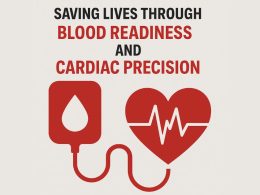Introduction
Experiencing dizziness or Lightheaded can be an unsettling and perplexing sensation. In this comprehensive article, we delve into the multifaceted nature of these symptoms, exploring the nuanced differences between them and shedding light on potential causes. Understanding the intricacies of dizziness and lightheadedness is crucial for individuals seeking not only relief but also insights into their overall health.
Distinguishing Dizziness from Lightheadedness
Dizziness and lightheadedness, often used interchangeably, can convey distinct sensations to different individuals. Dizziness may manifest as a feeling that the room is spinning, coupled with difficulties maintaining balance. Lightheadedness, on the other hand, is characterized by a sensation of impending faintness or passing out. While these symptoms may not always be cause for immediate concern, they can serve as indicators of underlying health issues that warrant attention.
Exploring Potential Causes and Corresponding Remedies
1. Low Blood Sugar
Description: Insufficient sugar levels in the bloodstream, a condition known as hypoglycemia.
Symptoms: Faintness, confusion, and blurred vision.
Remedy: Swift restoration of blood sugar levels through the consumption of a few grams of carbohydrates, such as fruit juice, candy, or glucose tablets.

2. Vertigo
Description: Often misunderstood as a fear of heights, vertigo is a symptom rather than an illness, commonly associated with inner ear problems.
Symptoms: Sensation of spinning, accompanied by feelings of faintness, unbalance, or nausea.
Remedy: Addressing the root cause of inner ear issues to alleviate symptoms.

3. Standing Up Too Quickly
Description: Orthostatic hypotension, a phenomenon where blood may not reach the brain rapidly upon standing.
Symptoms: Transient lightheadedness or dizziness, typically resolving within a few minutes.
Concern: Persistent symptoms may indicate a more serious underlying issue that requires further investigation.

4. Medications
Description: Certain medications, including those for hypertension, heart conditions, and depression, may induce dizziness by lowering blood pressure.
Symptoms: Feelings of unsteadiness or imbalance.
Recommendation: Promptly inform your healthcare provider if experiencing such side effects after initiating new medications.

5. Motion Sickness
Description: Discrepancies in brain signals during travel, leading to symptoms such as nausea, cold sweats, and, in some cases, “land sickness.”
Note: Prolonged symptoms may result in mal de debarquement, with swaying sensations lasting for weeks.

6. Dehydration
Description: Insufficient fluid intake resulting in low blood pressure, potentially leading to feelings of lightheadedness.
Symptoms: Parched feeling, fatigue, and lightheadedness.
Indicator: Dark yellow urine serves as a sign for increased fluid consumption.

7. Meniere’s Syndrome
Description: An illness triggering intermittent dizzy spells, often accompanied by nausea, vomiting, full ears, and tinnitus.
Management: Treatment may involve medication, dietary changes, and physical therapy.

8. Perilymph Fistula
Description: Trauma, such as a head injury, causing a tear in the tissue separating the middle and inner ear, resulting in dizziness.
Symptoms: Ringing in the ears, sensitivity to loud noises.
Response: Rest may suffice, but persistent cases may require surgical intervention.

9. Low Iron
Description: Iron deficiency, leading to anemia and associated symptoms.
Symptoms: Dizziness, weakness, pallor, and cold hands.
Consideration: Women experiencing heavy menstrual periods are particularly prone to anemia.

10. Heart Problems
Description: Various cardiac issues impacting blood flow to the brain, potentially causing dizziness and lightheadedness.
Symptoms: Persistent dizziness, irregular heartbeat, chest pain, or fatigue.
Urgency: Immediate medical attention is advised for persistent symptoms.

11. Vestibular Neuritis
Description: Inflammation of the vestibular nerve due to a viral infection.
Symptoms: Wooziness, unsteadiness, and nausea.
Recovery: Generally clears up on its own, but rest may be necessary during the healing process.

12. Other Causes
Emergency Signals: Sudden lightheadedness may signify a medical emergency, such as a blood clot or stroke.
Urgency: Immediate medical attention is warranted for symptoms like limb weakness, vision loss, slurred speech, or a sudden severe headache.

Conclusion
In conclusion, unraveling the complexities of dizziness and lightheadedness provides a roadmap for individuals seeking relief and understanding. Persistent or alarming symptoms should prompt a visit to a healthcare professional for a thorough evaluation. By addressing the root causes, individuals can take proactive steps toward managing and alleviating these often perplexing sensations, ensuring their overall well-being.












